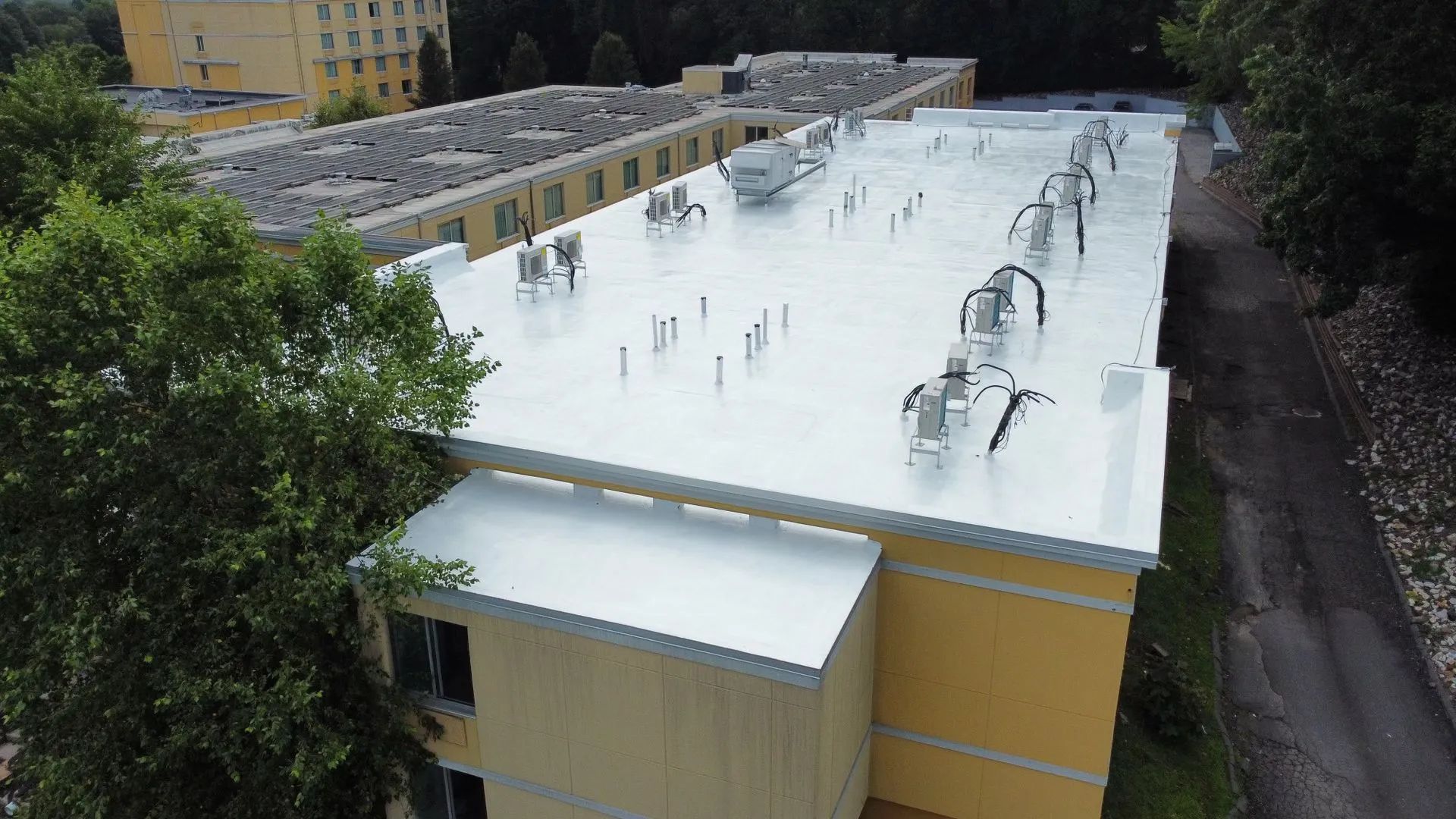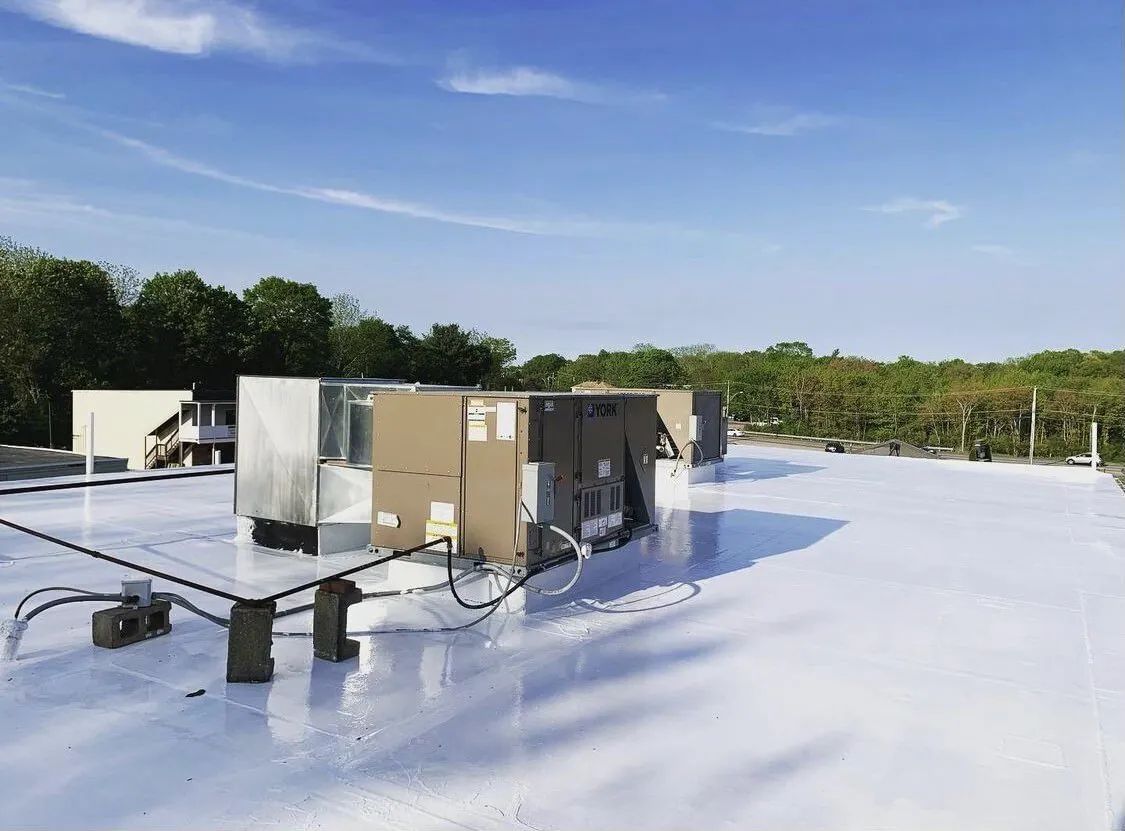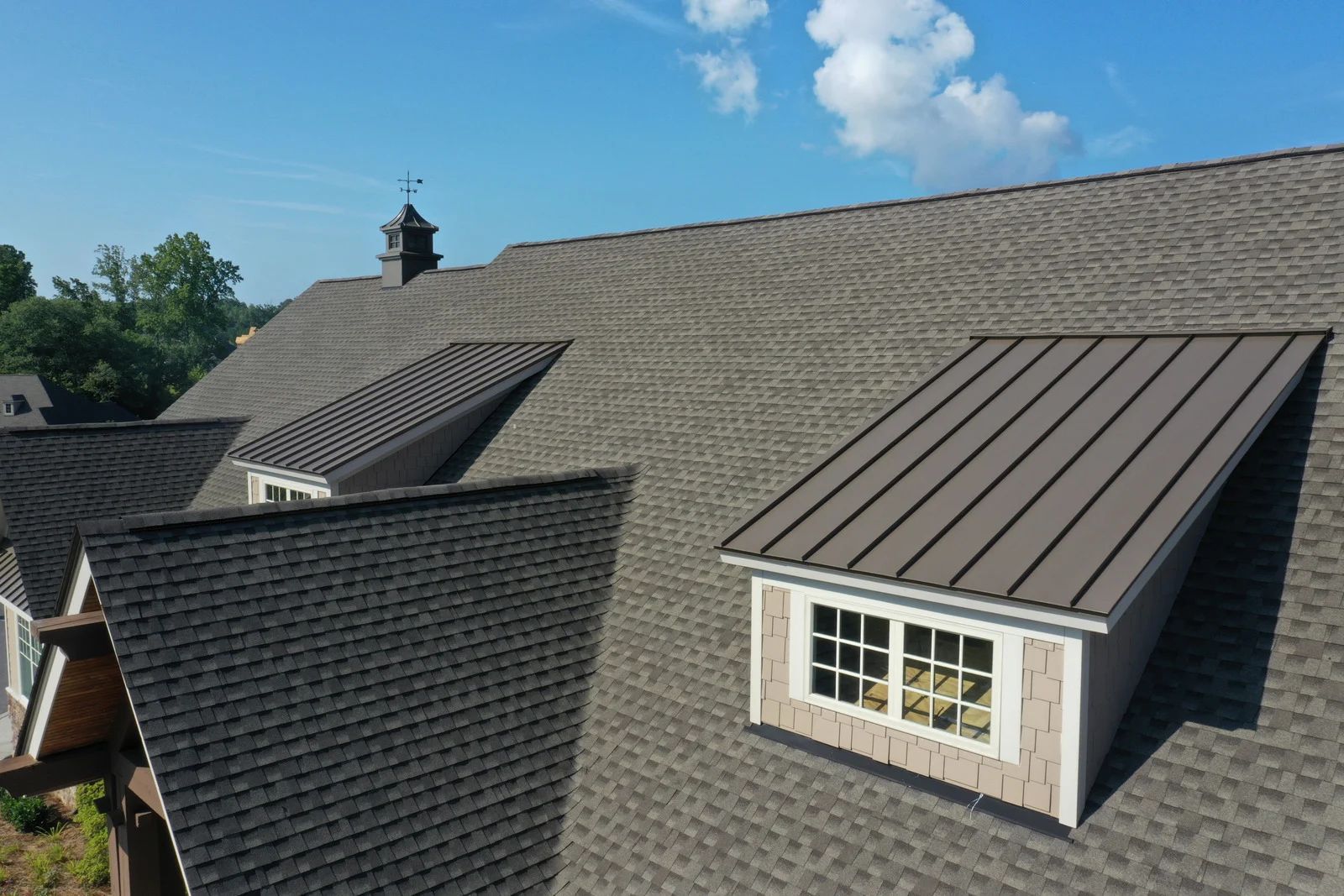Asphalt Shingle Roofs vs. Flat Roofs: Which Is Best for Your Property?
When it’s time to replace your roof or choose one for a new build, deciding between asphalt shingles and flat roofing can be challenging. Both systems are widely used, but they cater to different types of structures and offer unique advantages. Understanding the pros and cons of each will help you make a confident, cost-effective decision for your property.
Why Homeowners Prefer Asphalt Shingles
Asphalt shingles are the most common roofing choice for residential properties across the U.S. They’re popular because of their affordability, easy installation, and wide availability.Asphalt shingles are ideal for sloped roofs and offer excellent drainage. Rainwater, snow, and debris easily run off, preventing buildup and moisture damage.
They come in a variety of colors, textures, and styles, which makes them versatile for different architectural styles. Lifespan typically ranges from 20 to 30 years with regular maintenance. However, shingles can suffer damage from high winds, hail, and UV exposure, and you may occasionally need to replace a few.
Benefits of Flat Roofing Systems
Flat roofs are a go-to option for commercial buildings, but are becoming increasingly popular in modern residential architecture. They provide a sleek, minimalist look and can even double as extra usable space. Homeowners may choose to add solar panels, rooftop patios, or HVAC units on top.
Materials like TPO, EPDM, and modified bitumen are commonly used on flat roofs. These materials are engineered to resist standing water and UV damage. While flat roofs are easier to inspect and walk on, they require a highly effective drainage system to avoid water pooling, which can lead to leaks and internal damage.
Installation and Maintenance Differences
Installing asphalt shingles tends to be quicker and less labor-intensive, which helps reduce upfront costs. Flat roofing systems require precision and sealing to ensure they are watertight. Improper installation on either type of roof can lead to early failure, so professional installation is key.
When it comes to maintenance, asphalt shingles require inspections for cracked, curling, or missing tiles. Flat roofs need to be checked for ponding water, membrane tears, and blockages in the drainage system. Both systems benefit from seasonal inspections and prompt repairs.
Energy Efficiency and Longevity
Flat roofs often have reflective coatings that improve energy efficiency by deflecting sunlight, which helps lower cooling costs in warm climates. Some asphalt shingles also come with energy-efficient options, but their effectiveness varies based on slope and sun exposure.
In terms of longevity, high-quality flat roofing systems can last up to 25 years, depending on the material. Asphalt shingles tend to last a bit longer but may require minor repairs along the way. Budget, appearance, and intended roof use should guide your final decision.
If you're unsure which roof fits your property best, Pinnacle Roofing
in West Haven, CT is here to help. With 30
years of experience in roofing systems, our team offers expert guidance, quality installations, and dependable service. Contact Pinnacle Roofing
today to schedule your consultation and find the ideal roofing solution for your home or business.




